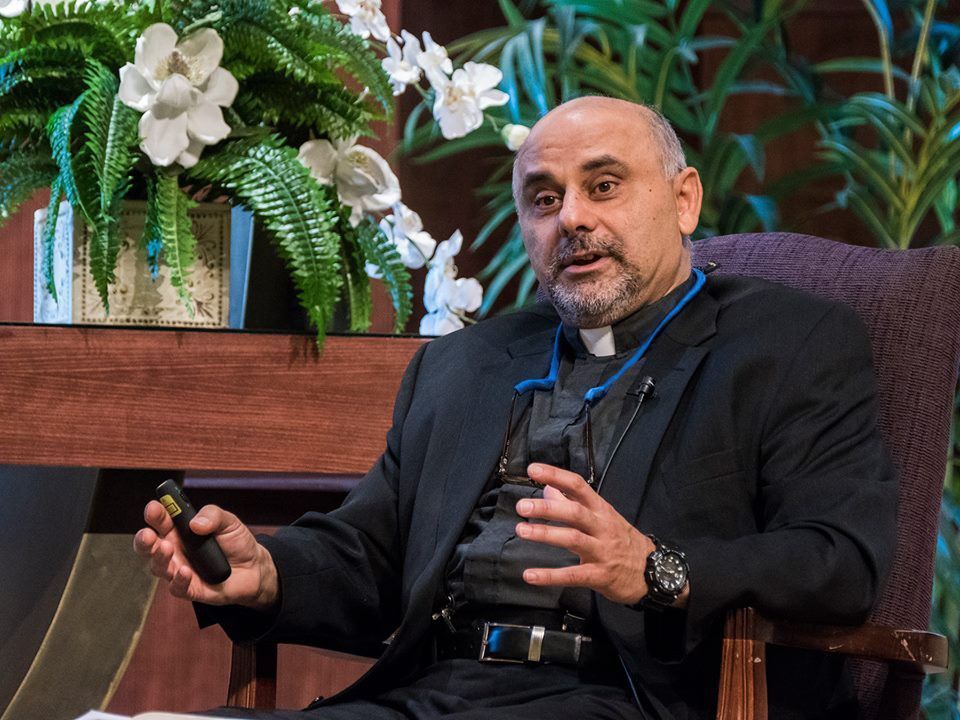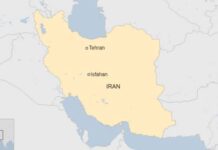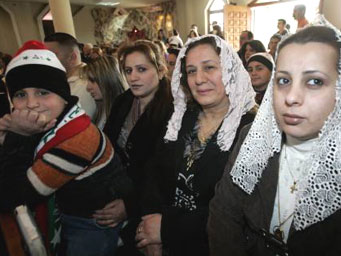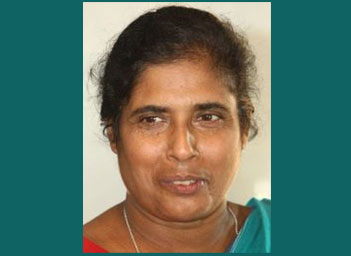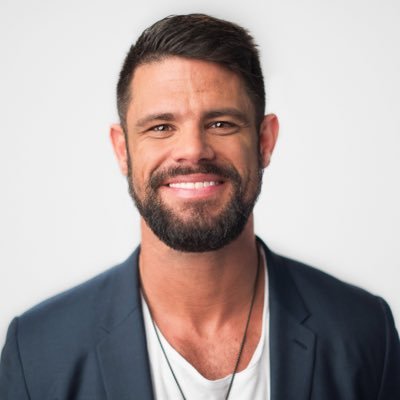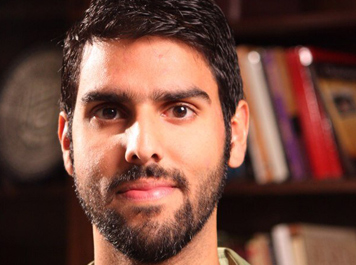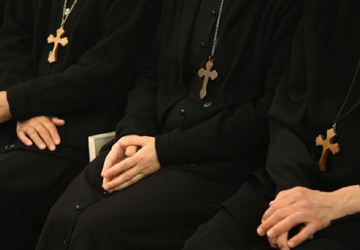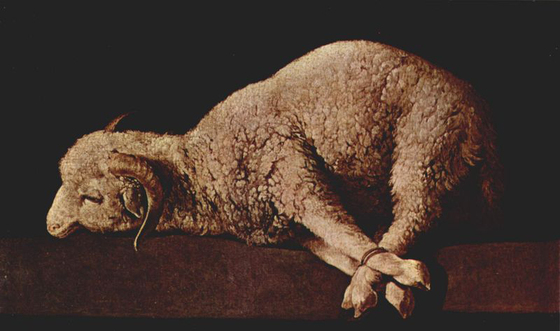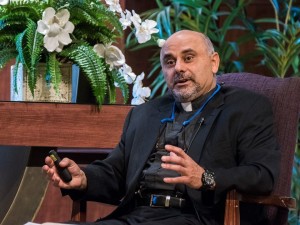 The Rev. Hesham Shehab, who grew up a Muslim in Beirut, Lebanon, had his first encounter with a Christian at age 7.
The Rev. Hesham Shehab, who grew up a Muslim in Beirut, Lebanon, had his first encounter with a Christian at age 7.
The other boy had no love for Muslims.
“He attacked me while I was playing marbles outside,” Shehab said in a telephone interview from Chicago, where he now lives. “He had a stick with a nail on it and banged it on my head. I almost lost an eye, and it left me with a scar.”
Later, Shehab’s brother died at the hands of a Christian militia, which pushed Shehab to seek deadly revenge. Shehab eventually embraced Christianity and is now a missionary with the Lutheran Church — Missouri Synod.
Shehab grew up in a neighborhood that was a 10-minute walk to American University of Beirut (AUB).
“My neighborhood was mixed, Christians and Muslims,” he said. “My grandpa rented out to Christians, mainly Greek Orthodox, and that neighborhood was cosmopolitan.”
The university attracted students and professors from all over the world. He often saw a large smattering of Westerners with blond hair at the beach.
“It was a good life,” Shehab said.
The recounting of his life necessarily comes with a history lesson. When Lebanon gained its independence from France in 1943, there was an even split between Christians and Muslims.
The National Pact, created that year, agreed that the president would be a Maronite Christian, the prime minister a Sunni Muslim and speaker of parliament a Shi’a Muslim. Christians also had 70 to 80 percent majority in parliament.
“The president sometimes abused his power, and Muslims wanted more representation, more political power,” Shehab said. “This trickled down to the street.”
The politics and the religious tensions are too complicated to boil down into a sentence or two. But by the time he was 12, Shehab had been recruited into the Lebanese faction of the Muslim Brotherhood.
At age 15, at the start of the country’s civil war, Shehab carried weapons and started shelling the largest Christian neighborhood. Uneasy at being directed to fire guns at civilians, he spoke to the head of the Muslim Brotherhood in Beirut.
“He said ‘you seem to be a thinker, I heard you recite the Koran,’” Shehab said. “’Would you like to be one of our preachers in the future?’ I thanked him, told him it was an honor.”
After six months, he was ready to give his first Friday sermon. But on the way, he got into a car crash, which broke both his legs, and he was bedridden for a year. Shehab was hospitalized at the AUB Medical Center.
The medical care he received inspired him to think about becoming a doctor, so he spent his time off his feet learning English. He read comic books until he ran out.
“Then I discovered Louis L’amour,” Shehab said. “I read all of his novels and short stories.”
He went back to high school, got himself admitted to the AUB in pre-med. It was a dream come true.
“It seemed God had different plans for my life,” Shehab said.
In his first semester, in 1981, his brother was killed by a Christian militia. Devastated, Shehab couldn’t focus on his studies, and he dropped all but one of his classes.
“I used to go in disguise at night, carrying two guns and a silencer, stalking people I knew in college,” he said. “What happens is that hate eats you up from the inside.”
The only course he continued at the university focused on cultural studies. It included snippets from Greek mythology, philosophy and the Old and New Testaments.
One day, his professor shared part of the Sermon on the Mount (Matthew chapters 5-7). Shehab heard: “Love your enemies and pray for those who persecute you.”
The words both stunned and inspired him. Shehab grabbed a copy of the Bible from the library and began reading on his own.
“The more I read the Bible, the more I felt peace and forgiveness,” he said. “I thought I should go to church to see how they speak about Jesus Christ.”
After several years, he became a Christian. It took Shehab many years to be baptized because he was living the life of a secret Christian, both in his family and his community.
He wanted to be a bridge between the Muslim and the Christian communities, since he understood both. Shehab formed a nongovernmental organization to bring people together and deal with the traumas of the civil war, which ended in 1989.
A series of events brought him to the United States in 2004. These days he now leads the Salam Christian Fellowship in Chicago, where he assists people with social service issues, helping them with translation, paperwork and transition into the American culture.
“We don’t ask anybody to convert unless they really show a desire for that,” Shehab said. “We show the love of Christ and help them through their social and sometimes financial problems.”
As he travels around the country, Shehab encourages Christians to break through stereotypes and reach out to Muslims who may otherwise feel isolated. It’s important to get to know them “as human beings and extend a loving hand to them,” he said.
“We always think we want to share the Gospel with people who look like us, share the same culture, the same football team,” he said. “We have to go out of our cocoon and extend a loving hand to our neighbors.” Susan Olp/Billings Gazette



